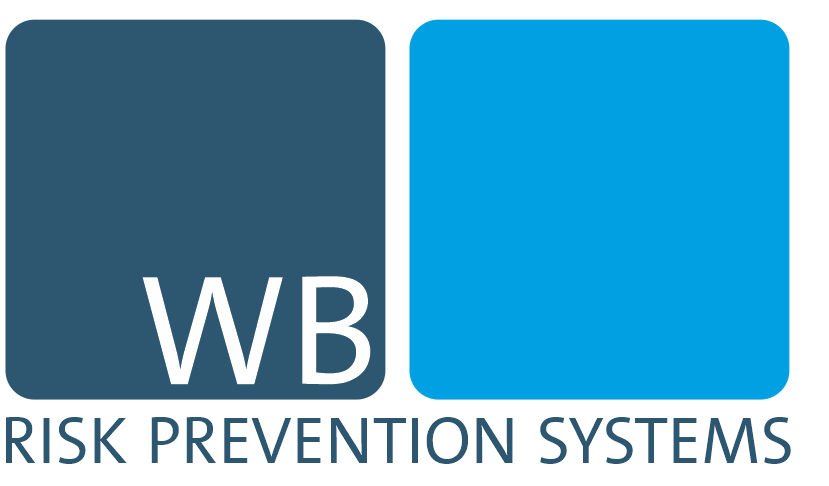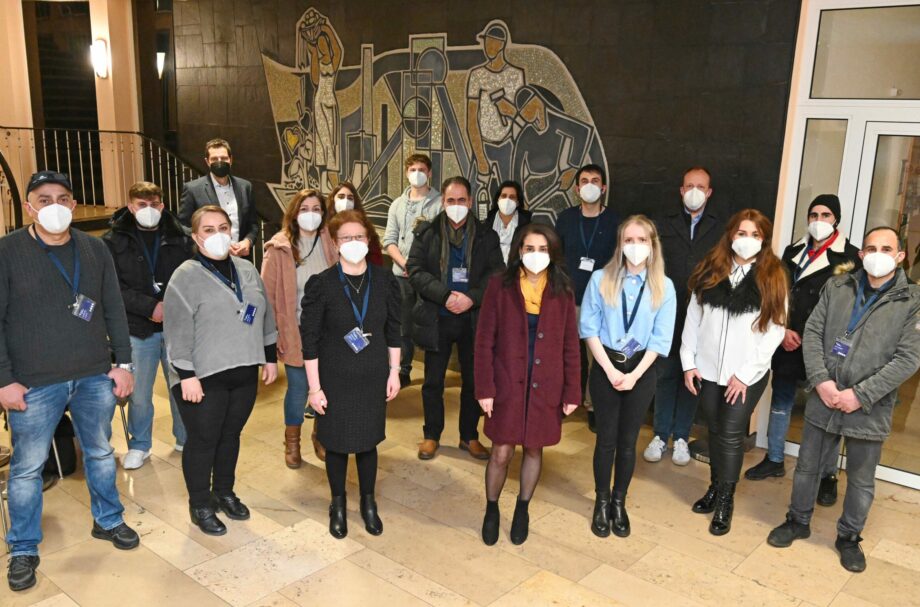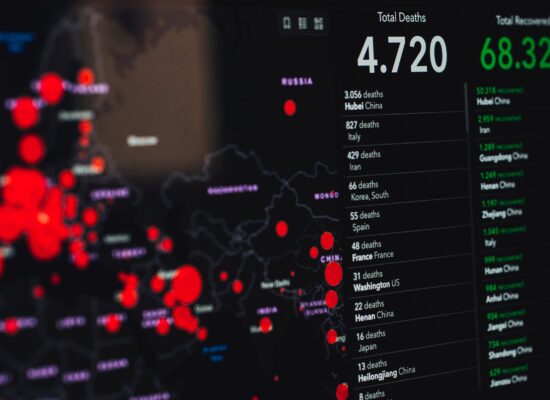WB Risk Prevention Systems unterstützte Task
Force der Stadt Bochum zur Stärkung der
Impfquote und der Gesundheitsvorsorge.
In der Diskussion um Impfquoten und -pflichten fragen sich vor allem die Kommunen und Gesundheitsämter, wie man die Bevölkerung am besten vor Infektionen schützen und zur Impfung motivieren kann. Bevor man diese Frage aber überhaupt beantworten kann, muss man die Bevölkerungsgruppe der Ungeimpften analysieren, um u.a. zu erfahren, warum sich einige Menschen bislang nicht impfen lassen und wie sie erreicht werden können.
Die mangelhafte Datenverfügbarkeit ist dabei eine besondere Herausforderung, mit der im Herbst 2021 auch die Stadt Bochum konfrontiert wurde. Trotz hoher Impfquote und einer effizienten Organisation des Impfzentrums entstand zunehmend der Eindruck, dass man einen Teil der Bevölkerung bislang (noch) nicht über die klassischen Wege der Impfkampagne erreichen konnte. Es lag allerdings keine Datenbasis vor, mit der man die Gruppe genauer identifizieren konnte.
Auslangslage in Bochum
Um diesen Datenmangel zu beheben, setze WB Risk Prevention Systems in Zusammenarbeit mit der Stadt eine Erhebung auf zwei Ebenen um:
- Zum einen, indem wir eigene Befragungen und Beobachtungen durchführten
- Zum anderen, indem wir nach Analogien suchten, wie z.B. Erfahrungen anderer Kommunen und Erkenntnisse aus Studien, wofür wir ein Screening internationaler Daten vornahmen und uns mit anderen Städten und Regionen austauschten
Im Vordergrund stand keine standardisierte Befragung, um repräsentative Aussagen treffen zu können, sondern der Wunsch, so schnell wie möglich konkrete Ansätze zu erhalten. Mithilfe der Gemba-Walk-Methode (japanisch für „Ort des Geschehens“), sind wir in die einzelnen Stadtbezirke gegangen, um dort mit den Menschen ins Gespräch zu kommen.
Aus beiden Maßnahmen resultierte die Erkenntnis, dass es vor allem die Quartiere mit einem hohen Anteil sozial benachteiligter Einwohner*innen sind, die a) die Auswirkungen von Corona besonders deutlich zu tragen haben (hohe Inzidenzen) und die b) mit bisherigen Impfkampagnen kaum erreicht wurden.
In Bochum war es der Stadtbezirk Wattenscheid, im dem besonders viele Bewohner*innen entweder gar nicht oder nur einmal mit Johnson&Johnson geimpft waren. Ein Teil der befragten Personen hatte Angst vor Nebenwirkungen, schätzte die Impfwirkung falsch ein oder gehörte zur Gruppe der Impfskeptiker, Coronaleugner oder Verschwörungstheoretiker. Die größte Gruppe bildeten aber Menschen, die entweder nicht angemessen aufgeklärt wurden oder die zur Verfügung stehenden Möglichkeiten nicht kannten, weil sie die Informationsflut überforderte, sprachliche Hürden hemmten oder das Impfangebot gar nicht mitbekommen hatten.
Mit anderen Worten: Es gab viele Bürger*innen, die noch nicht geimpft waren, aber einer Impfung gar nicht grundsätzlich ablehnend gegenüberstanden.
Task Force „Wattenscheid gegen Corona“
Im Auftrag des Bochumer Dezernats für Jugend, Soziales und Gesundheit hat WB Risk Prevention Systems Mitte Dezember 2021 eine Task Force ins Leben gerufen. Mitarbeiter*innen des Bochumer Gesundheitsamtes, des kommunalen Integrationszentrums und der Gesundheitskonferenz, Ehrenämtler*innen aus Wattenscheid und die Bezirksbürgermeister schlossen sich als Ansprechpartner, die bereits einen Zugang zu den verschiedenen Communities und Menschen vor Ort haben, zusammen. Für die Organisation und Moderation der Anfangsphase waren unsere Experten Rita Diede-Stützel und Dr. Johannes Wamser, Krisenmanager von WB Risk Prevention Systems, verantwortlich.
Die obersten Ziele waren a) die Erhöhung der Impfquote und b) die Aufklärung darüber, wie man sich im Verdachts- und/oder Infektionsfall verhalten sollte.
Dafür wurden 14 Impflotsen*innen, die aus den relevanten Communities stammten bzw. deren Sprache beherrschten, in die Quartiere entsandt, wo sie von medizinischem Fachpersonal unterstützt wurden. Die Erkenntnisse wurden täglich gesammelt und gemeinsam in der Task Force besprochen. Aufgrund des „lernenden Konzepts“, in dem „trail und error“ Teil der Strategie sind, konnten wir täglich auf die sich ändernden Herausforderungen reagieren. Ergänzt wurden die eigenen Erfahrungen durch einen intensiven Austausch mit anderen Kommunen, v.a. mit den Städten Bremen und Bremerhaven, um auch von deren „Hits“ und „Shits“ zu lernen.
Das direkte Gespräch in verständlicher Sprache und von „Mensch zu Mensch“ schuf Vertrauen und die Anzahl der Impfungen konnte, über die Grenzen Wattenscheids hinweg, deutlich erhöht werden. Im weiteren Verlauf der Kampagne stand die öffentliche Wahrnehmung und die Vernetzung mit Akteuren*innen Wattenscheids im Fokus der Task Force. Außerdem entstand eine eigene Internetseite.
Herausforderung für kommunale Strukturen
Damit eine solche Kampagne funktionieren kann, müssen persönliche oder politische Befindlichkeiten zurückgestellt und hierarchische Komplikationen oder Zuständigkeitskonflikte vermieden werden. Die üblichen Kommunikationsschnittstellen und Entscheidungswege müssen zur Nebensache werden.
Aus unserer Sicht ist es begeisternd, wie gut das in Bochum funktioniert hat und wie sehr sich alle Beteiligten auf diesen Weg eingelassen und damit die Task Force unterstützt haben.
„Beeindruckend war und ist das Engagement der Integrationsvereine und ehrenamtlichen Impflotsen*innen, die teilweise erst seit wenigen Jahren in Deutschland leben und dennoch sofort bereit waren, sich für die richtige Sache und für die Bochumer Stadtgesellschaft voll einzusetzen“, so Johannes Wamser. „Aber auch für die Stadtverwaltung ist es keine Selbstverständlichkeit, sich auf einen Weg außerhalb der Regelorganisation einzulassen. Ohne die Rückendeckung und jederzeitige Unterstützung der gesamten Bochumer Verwaltung – vom Oberbürgermeister, über die Dezernats- und Amtsleiter*innen bis hin zu den Mitarbeitern*innen – hätte dieses Projekt nicht erfolgreich durchgeführt werden können.“
Aufgrund der positiven Effekte hat sich die Stadt Bochum entschieden, die Lotsenstrategie weiterzuführen und auf andere Stadtteile auszuweiten. Dabei deutet sich auch die langfristige Perspektive an, dass „aufsuchende Maßnahmen“ in den Quartieren zu Fragen rund um Gesundheit, Prävention, Pflege und Therapie auch über Corona hinausgehend sinnvoll sind.
Beitragsbild: Impflotsen*innen und Vertreter der Task Force beim Treffen mit dem Oberbürgermeister Thomas Eiskirch (Foto: André Grabowski, Pressestelle der Stadt Bochum)







